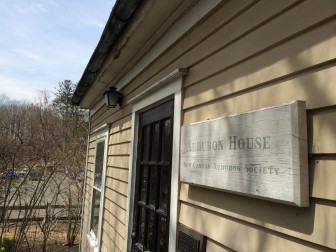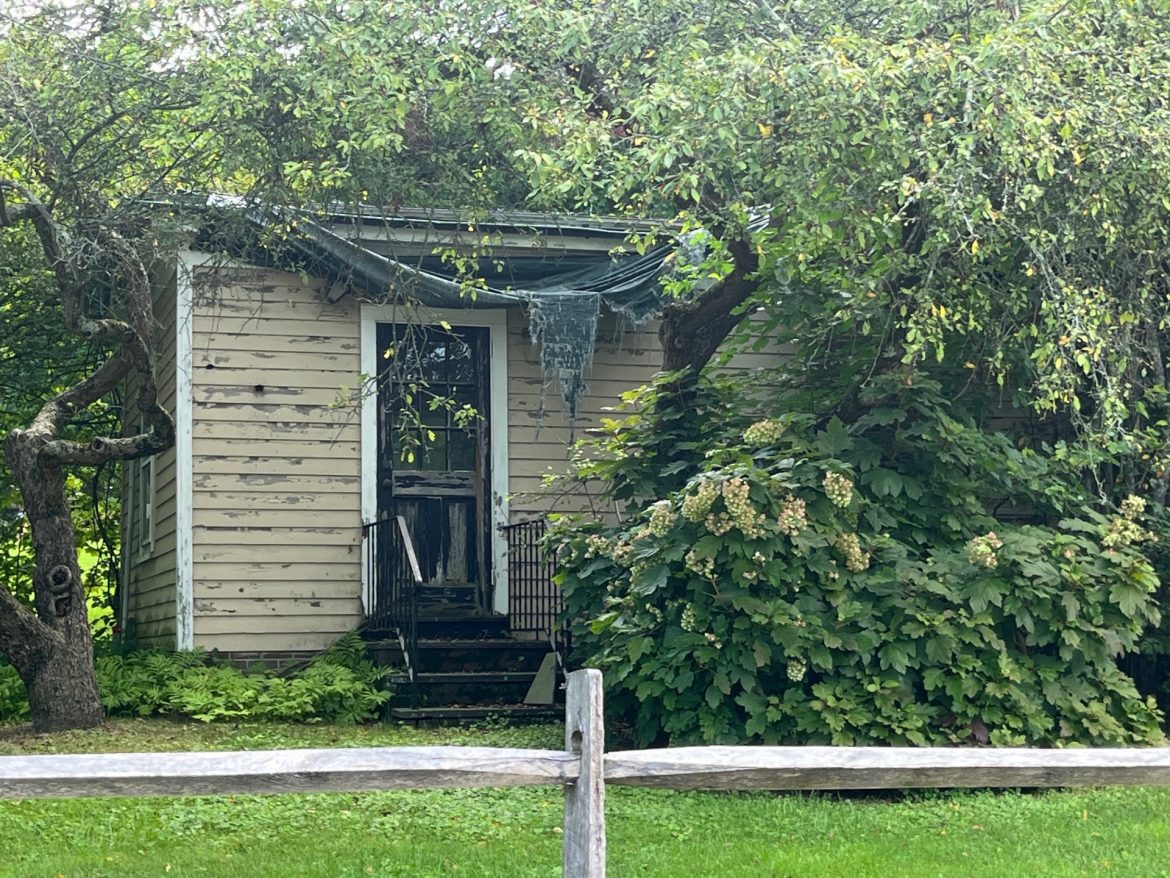The New Canaanite 2024 Summer Internship Program is sponsored by Karp Associates.
Town officials last week approved a request to demolish a long-disused town-owned building at the New Canaan Nature Center.

Inside the ‘Audubon House’ at the New Canaan Nature Center. Photo courtesy of New Canaan Nature Center
During the Aug. 6 meeting of the Board of Selectmen, officials discussed the future of the “Audubon House,” a deteriorating 15-by-30-foot structure located across from the Oenoke Ridge nonprofit organization’s Visitor Center.
Department of Public Works Senior Engineer Joe Zagarenski asked the Board of Selectmen for authorization to enter into a contract with Fuss & O’Neill, a civil and environmental engineering company.
The contract, in the amount of $4,355 plus a contingency of $800 (a total of $5,155), is required to perform the demolition of the rectangular structure, Zagarenski told the Board at its regular meeting, held at Town Hall and via videoconference.
Director of Public Works Tiger Mann said the cost is funded in the fiscal year 2024-25 budget in a $50,000 line item.

Audubon House (shown here in 2014) had been operated by the now-defunct New Canaan Audubon Society. Credit: Michael Dinan
The building originally served as a laundry facility for the late Susan Dwight Bliss, a New Canaan resident and philanthropist. In 1959, she gifted the town 40 acres of green space, and soon an agreement was reached with the newly formed New Canaan Nature Center Association Incorporated. Officials for more than a decade have talked about how to use the long-disused structure. Nature Center representatives last year floated new ideas for its use.
During the meeting, Zagarenski said that in order to demolish the Audubon House, an alternative work practice must be put in place because the building “is already falling down.”
In typical cases, before the demolition of a building, there is a pre-demolition inspection in which hazardous materials are removed from the site. In the case of the Audubon House, this is impossible, as the roof has fallen in.
Because of this, individuals cannot enter the building for testing or for the removal of dangerous materials, he said – officials anticipate the presence of substances such as asbestos or lead within the building, given its old age.
So its demolition requires the creation of an alternative work practice – a plan to be presented to public health officials for approval.
“The alternative work plan sets the stage for what manner the building is going to come down and how it is going to be sorted and controlled,” Zagarenski said.
By creating an alternative work plan, the Building Department hopes to prevent individuals from entering the dilapidated building in order to conduct proper testing and abatement.
Zagarenski called the alternative work plan a “different type of exposure” for those conducting air quality testing within the building.
“We’re going to have people in Tyvek suits that are going to be in the middle of our Nature Center so we need to protect those people,” he said.
The selectmen discussed the cost of the demolition.
Selectman Steve Karl said he thought the demolition would be as simple as a “scoop and go.”
Zagarenski clarified that “unfortunately it’s a lot of little numbers.”
The Board unanimously approved the contract.
